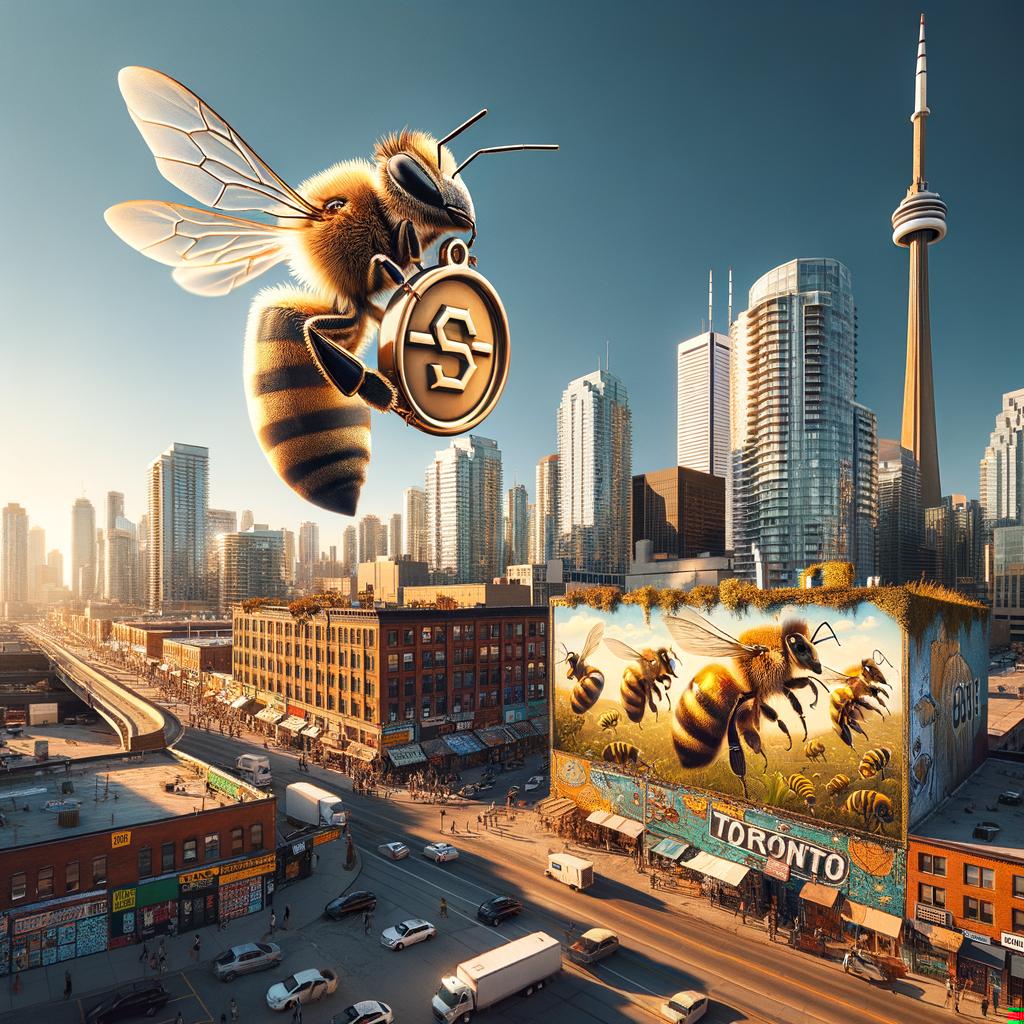Toronto's Buzzing Love Affair: The City's Embrace of Honeybees
Posted on July 15, 2023 • 3 minutes • 625 words
Table of contents
Toronto’s Buzzing Love Affair: The City’s Embrace of Honeybees
In recent years, Toronto has been creating quite a buzz – and it’s not just from the hustle and bustle of city life. The metropolis has become a surprising haven for honeybees, with urban beekeeping initiatives sprouting up across the concrete jungle. This growing trend is not only sweetening the city’s landscape but also playing a crucial role in environmental sustainability.
The Rise of Urban Beekeeping
Toronto’s love affair with honeybees began as a grassroots movement, with environmentally conscious citizens recognizing the importance of these tiny pollinators in our ecosystem. Today, you can find beehives dotting the city’s landscape, from community gardens to the rooftops of some of Toronto’s most iconic buildings.
The Fairmont Royal York Hotel, for instance, houses over 350,000 honeybees in its rooftop apiary, producing hundreds of pounds of honey each year. This initiative not only provides fresh, local honey for the hotel’s culinary endeavors but also serves as a powerful symbol of the city’s commitment to urban agriculture and sustainability.
Community Engagement and Education
Toronto’s honeybee initiatives extend far beyond just housing hives. The city has embraced a holistic approach to bee conservation, focusing heavily on community engagement and education. Organizations like the Toronto Beekeepers Collective offer workshops and courses for aspiring beekeepers, while community events like the annual Honey Harvest Festival celebrate the city’s apian residents.
Schools across Toronto are also getting involved, with many incorporating beekeeping into their curriculum. These programs not only teach students about the importance of pollinators but also instill a sense of environmental stewardship from a young age.
Green Spaces and Bee-Friendly Policies
The City of Toronto has taken significant steps to support its buzzing population. The PollinateTO Community Grants program, launched in 2019, provides funding for pollinator gardens and education initiatives. These gardens, scattered throughout the city, provide essential food sources and habitats for honeybees and other pollinators.
Moreover, Toronto has implemented bee-friendly policies, such as restricting the use of neonicotinoid pesticides, which are harmful to bees. The city has also committed to planting more native, pollinator-friendly species in public spaces, creating a more hospitable environment for bees throughout the urban landscape.
The Sweet Benefits
The benefits of Toronto’s honeybee initiatives extend far beyond the production of local honey. Bees play a crucial role in pollinating plants, including many of the fruits and vegetables grown in the city’s community gardens and urban farms. This not only supports local food production but also enhances biodiversity within the city.
Furthermore, the presence of honeybees in Toronto has sparked conversations about broader environmental issues, from climate change to sustainable urban planning. It has encouraged residents to think more critically about their relationship with nature and their role in preserving it, even within an urban setting.
Challenges and Future Prospects
Despite the success of Toronto’s honeybee initiatives, challenges remain. Urban beekeepers must navigate city bylaws, manage potential conflicts with neighbors, and address concerns about bee swarms. However, with continued education and community engagement, these challenges are being met with innovative solutions.
Looking to the future, Toronto’s love affair with honeybees shows no signs of waning. As the city continues to grow and evolve, so too does its commitment to these essential pollinators. From rooftop hives to community gardens, Toronto is proving that even in the heart of a bustling metropolis, there’s room for nature to thrive.
In embracing honeybees, Toronto has not only sweetened its urban landscape but has also set an example for cities worldwide. It’s a testament to the power of community-driven environmental initiatives and a hopeful sign for the future of urban ecology. As Toronto continues to buzz with activity, it’s clear that honeybees have found a loving home in the heart of Canada’s largest city.





